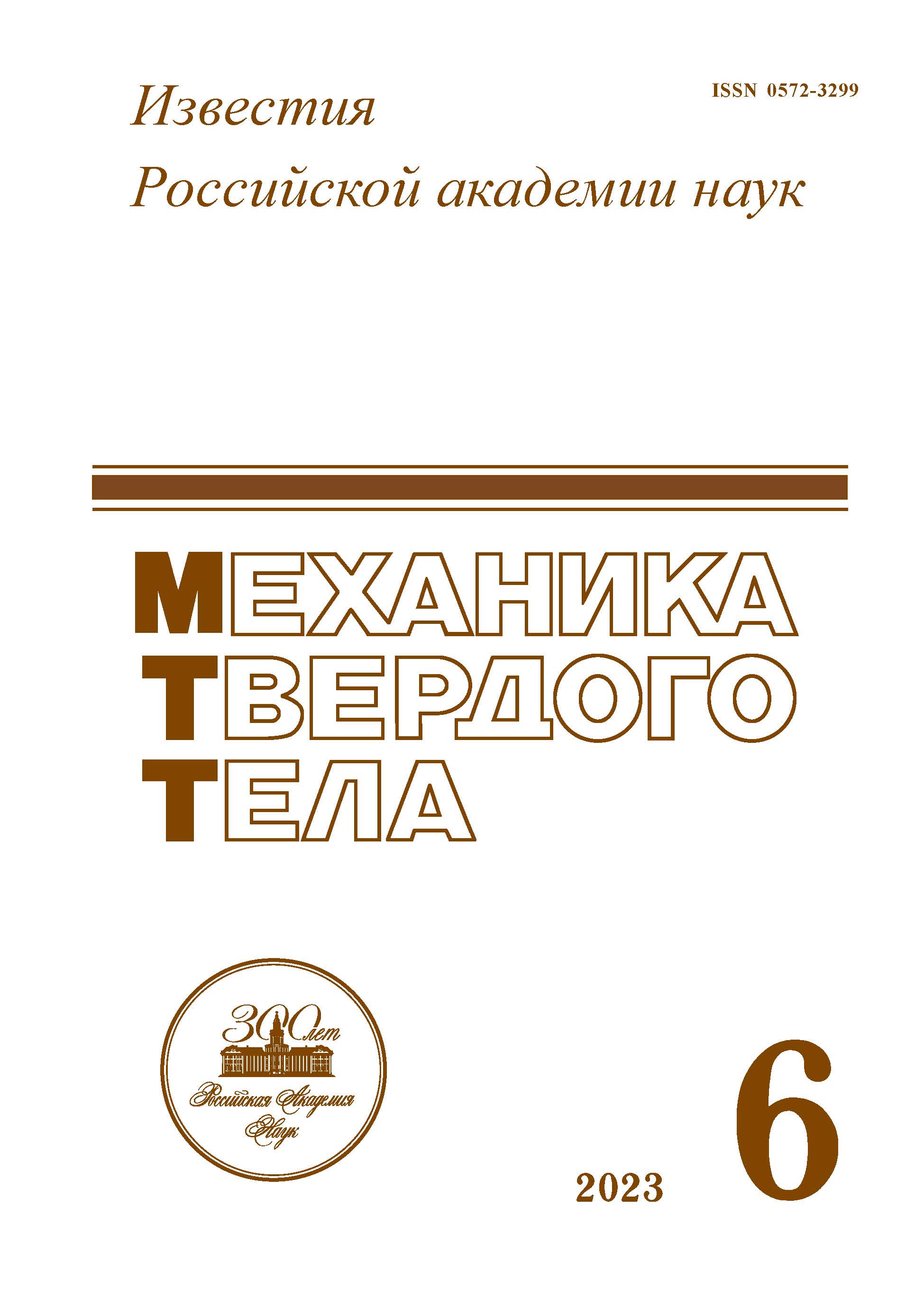Principal Problems of Relativistic Mechanics of Solids
- Autores: Vasiliev V.V.1, Fedorov L.V.2
-
Afiliações:
- The Central Research Institute for Special Machinery, JSC
- JSC MIC “NPO Mashinostroyeniya”
- Edição: Nº 6 (2023)
- Páginas: 125-135
- Seção: Articles
- URL: https://rjmseer.com/1026-3519/article/view/672656
- DOI: https://doi.org/10.31857/S0572329923700083
- EDN: https://elibrary.ru/BRJMFL
- ID: 672656
Citar
Texto integral
Resumo
The article deals with a discussion of fundamental problems arising in relativistic mechanics (general relativity) in relation to the determination of stresses generated by gravity in a deformable solid. Three such problems are considered. The first one is associated with the incompleteness of Einstein’s system of equations that includes six mutually independent equations with ten unknown coefficients of the metric tensor. The second one arises when determining the stresses in a solid generated by gravity. For a static problem, three equations of the law of conservation of theory (equilibrium equations) include six unknown stresses, which, unlike Newton’s theory, does not allow determining gravitational stresses. The third problem is related to the reduction of linearized Einstein equations to the equations of Newton’s gravitational theory. Such a reduction turns out to be possible only for empty space and is not valid for a solid body. The noted contradictions can be eliminated by limiting the scope of the theory to a special space, which is Euclidean with respect to spatial coordinates and Riemannian only with respect to time. The discussion is illustrated by a spherically symmetric problem that reduces to ordinary differential equations.
Palavras-chave
Sobre autores
V. Vasiliev
The Central Research Institute for Special Machinery, JSC
Email: vvvas@dol.ru
141371, Khotkovo, Russia
L. Fedorov
JSC MIC “NPO Mashinostroyeniya”
Autor responsável pela correspondência
Email: vvvas@dol.ru
143966, Reutov, Russia
Bibliografia
- Кильчевский Н.А. Основы тензорного исчисления с приложениями к механике. Киев: Наукова думка, 1972. 148 с.
- Ландау Л.Д., Лившиц Е.М. Теория поля. М.: Наука, 1988. 509 с.
- Вейнберг С. Гравитация и космология. М.: Мир, 1975. 696 с.
- Мизнер Ч., Торн К., Уилер Дж. Гравитация. В 3 т. М.: Мир, 1977.
- Хокинг С., Эллис Дж. Крупномасштабная структура пространства-времени. М.: Мир, 1977. 431 с.
- Фок В.А. Теория пространства, времени и тяготения. М.: ЛКИ, 2007. 563 с.
- Choquet-Bruhat Y. Theoreme d’existence pour certains systemes d’equations aux derivees partilles nonlinrares // Acta Math. 1952. V. 88. P. 141–225.
- Власов В.З. Уравнения неразрывности деформаций в криволинейных координатах // Избр. Тр. Т. 1. М.: Изд.-во АН СССР, 1962. 558 с.
- Vasiliev V.V., Fedorov L.V. Linearized equations of general relativity and the problem of reduction to the Newton theory // J. Mod. Phys. 2020. V. 11. P. 221–236. https://doi.org/10.4236/jmp.2020.112014
- Васильев В.В., Федоров Л.В. Задача теории упругости для гравитирующего шара и некоторые геометрические эффекты // Изв. РАН. МТТ. 2003. № 1. С. 84–92.
- Vasiliev V.V., Fedorov L.V. To the Schwarzschild solution in general relativity // J. Mod. Phys. 2018. V. 9. № 14. P. 2482–2494. https://doi.org/10.4236/jmp.2018.914160
- Рашевский П.К. Риманова геометрия и тензорный анализ. М.: Наука, 1967. 664 с.
- Алексеев С.О., Памятных Е.А., Урсулов А.В., Третьякова Д.А., Латош Б.Н. Общая теория относительности. М.: URSS, 2020. 400 с.
- Vasiliev V.V., Fedorov L.V. To the complete set of equations for a static problem of general relativity // J. Mod. Phys. 2019. V. 10. № 12. P. 1401–1415. https://doi.org/10.4236/jmp.2019.1012093
- Vasiliev V.V. Black holes or dark stars – what follows from the general relativity theory // J. Mod. Phys. 2017. V. 8. № 7. P. 1087–1100. https://doi.org/10.4236/jmp.2017.87070
- Vasiliev V.V., Fedorov L.V. To the solution of a spherically symmetric problem of general relativity // J. Mod. Phys. 2023. V. 14. № 2. P. 147–159. https://doi.org/10.4236/jmp.2023.142010
- Vasiliev V.V., Fedorov L.V. Spherically symmetric problem of general relativity for an elastic solid sphere // J. Mod. Phys. 2023. V. 14. № 6. P. 818–832. https://doi.org/10.4236/jmp.2023.146047
Arquivos suplementares










